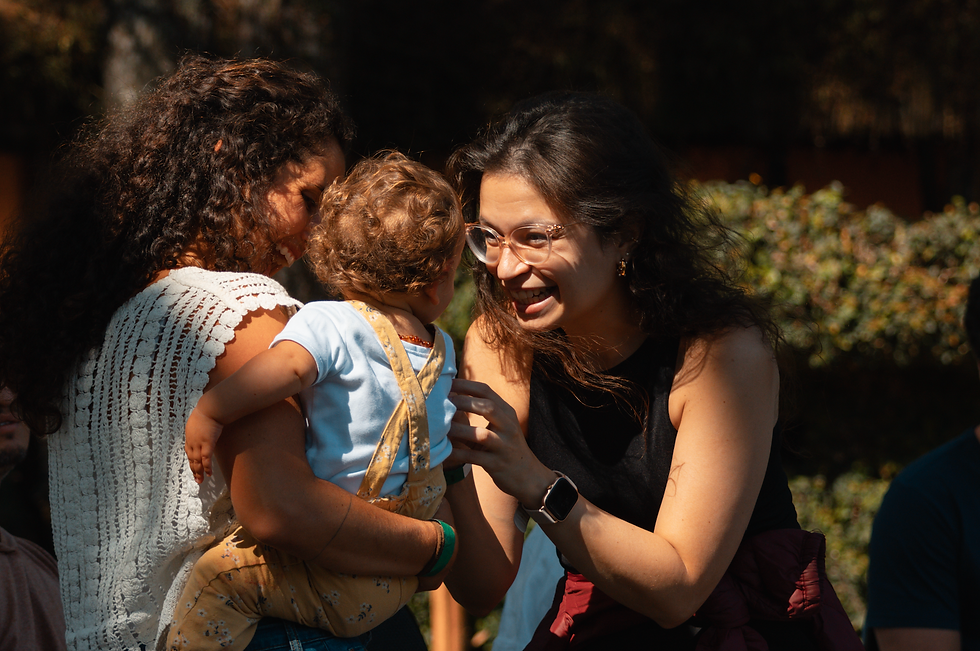Indigenous Wisdom Award honours Traditional Ecological Knowledge
- jessica7457
- Jun 7, 2023
- 3 min read
Updated: Jul 24, 2023
We have been celebrating Indigenous Wisdom at the LUSH Spring Prize 2023!

In a world shaped by colonial and patriarchal structures, we partnered with LUSH to co-create an award to honour Traditional Ecological Knowledge and support communities practicing it.
Three amazing organisations shared the Ancient and Indigenous Wisdom Award this year:
Instituto Janeraka from the Awaete indigenous community in the Amazon region of Altamira, Brazil. Janeraka is a word in Awete that means “neither mine nor yours, our house”
Ashiniawka - Sapara Women’s Association in the Ecuadorian Amazon, working on the intersection of women’s rights, agroecology and forest protection
Resguardo Indígena Musu Runakuna from the Inga people in the Colombian Amazon furthering the revitalisation of the spirit and good living, or “buen vivir”
This award is part of The LUSH Spring Prize, a joint venture between LUSH Cosmetics and Ethical Consumer. Started in 2017, the Spring Prize has distributed more than £1 million to regenerative projects worldwide.
“There is urgency to protect our forest. Thus we have been building, strengthening, and co-creating several exchanges of knowledge” - Time’I Awaete, Instituto Janeraka
Born in the Amazon, Instituto Janeraka exists to strengthen the indigenous Awaete culture and exchange knowledge and practices with other forest peoples.
The Awaete people have been in contact with global society for less than fifty years. Since first contact, they have faced genocide, ethnocide and ecocide, as deforestation, mining, and the construction of hydroelectric power plants threaten their lives and way of life.
Janeraka is an Awaete word meaning “neither mine nor yours, our house, and the house belongs to the one who takes care of it.” The Janeraka Institute has co-created several projects, including:
The Awaete Agenda – a knowledge exchange program that seeks to reflect on the relationship flows between indigenous, non-indigenous, and other forest peoples, focusing on indigenous rights and ethics in relationships.
The Janereka Podcast Channel, to strengthen the practice of orality, awarded by Art Artivism.
The Kujy Ete Women’s Collective, which participated in an international exhibition of indigenous art, staged by an indigenous curator, called Ka’a Body: Cosmovision of the Rainforest and created two award-winning documentaries.
The Janereka Ryru is an Awaete multimedia collection and platform designed to decolonize the Awaete heritage for use by the Awaete people themselves.
“We seed trees that cannot be destroyed. That is what Sapara women do, regeneration of the trees and the soil.”
Ashiniawka – Asociación de Mujeres Sapara has been defending the Amazon and the rights of indigenous peoples and women for more than ten years.
They stop the advance of oil companies and promote alternatives to extractivism, using agroecology and permaculture techniques to restore degraded land.
The organisation has also established itself as a safe haven for women to report cases of domestic violence and sexual abuse and they help women and children experiencing domestic violence find medical help and take legal action.
Today only 500 Sapara live in a territory of more than 360,350 hectares and only three people guard the language. The Sapara people conserve a highly diverse natural heritage and their lands form a natural border with the territories of Indigenous Peoples in Voluntary Isolation.
“Regeneration is a feeling and doing. A process and a consequence of conscious, respectful action towards others, with ourselves and with the environment”
Welcome to Musu Runakuna, a territory of the Inga people where the ancestral word favours the revitalisation of the spirit and good living.
Since large parts of their homes and territory were destroyed by an avalanche in 2017, the community has been in a process of ancestral reconstruction based on permaculture, the defence of Mother Earth and the implementation of ancestral knowledge. This political, social and economic regeneration is understood as a process and a consequence of “thinking beautifully” and acting consciously and respectfully.
Made up of 43 families and 170 people, the community is setting up the first Ancestral Environmental and Entrepreneurial Village, returning to their Inga Origins to recreate the lifestyle of their ancestors. The Village will be developed in phases, starting by planning the use, interconnection and administration of the environmental and spiritual territory, as well as the constitution of the Ancestral, Tourist and Gastronomic Indigenous Centre of Colombia, with representation from 115 indigenous peoples.



